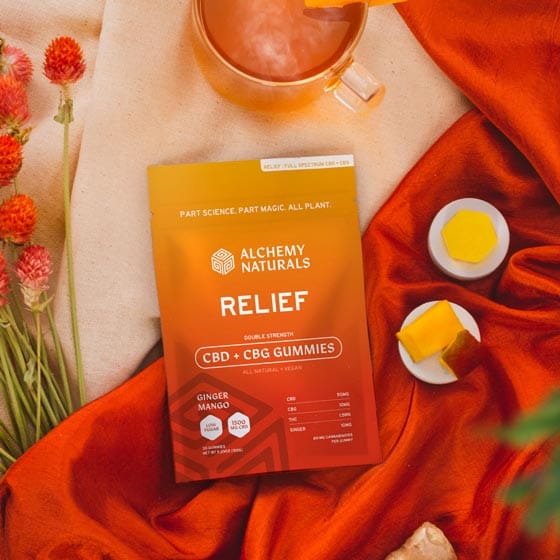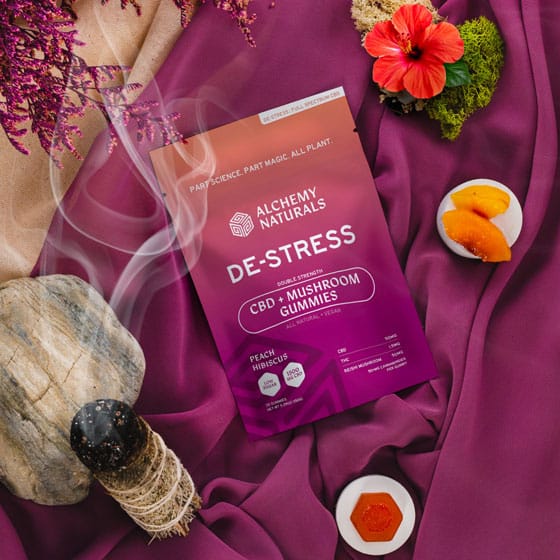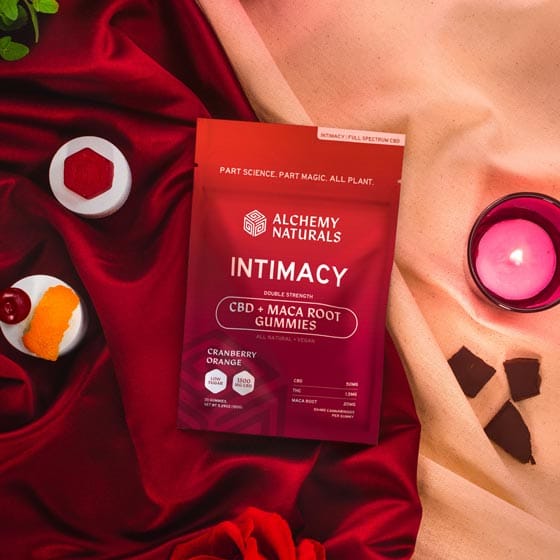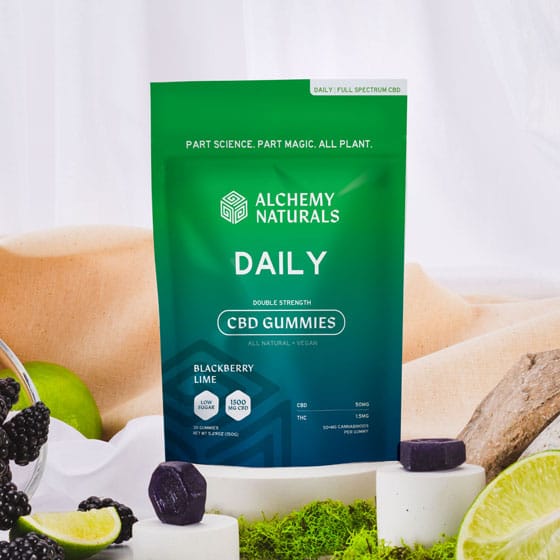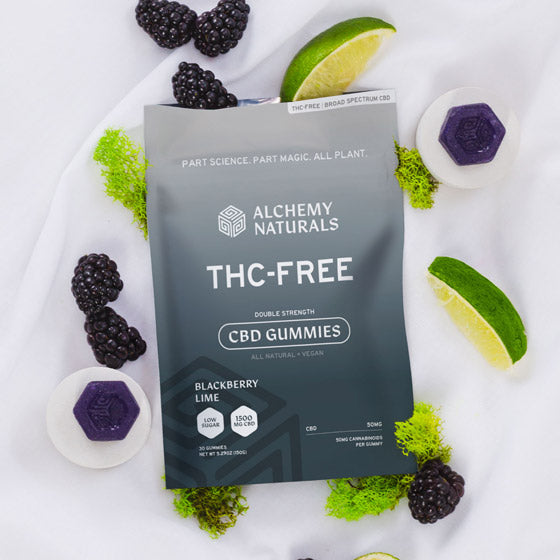If you are familiar with cannabis, you’ve probably heard a lot about cannabidiol (CBD) and tetrahydrocannabinol (THC), and what they are. But chances are that you might not know much about CBG, which is another type of cannabinoid, and about its health benefits. In fact, while CBD and THC are widely known and used, serious research is now underway on whether CBG for anxiety could become a new health trend.
CBG or cannabigerol is derived from the hemp plant. Let’s take a look at what this cannabinoid is all about and whether CBG for anxiety and stress is indeed beneficial.
What is CBG?
Many people call CBG the ‘mother of all cannabinoids’ because both CBD and THC are actually derived from CBG. The acidic form of CBG, which is called CBGA, occurs naturally in the plant’s fibres.
Here’s exactly how we get CBG. When CBGA reaches maturity in the plant, it makes other acidic cannabinoids, such as THCA and CBDA, also take shape. In the next stage, all three - CBGA, THCA and CBDA - go through a chemical reaction called decarboxylation, and change to CBG, THC and CBD, respectively.
In the cannabis plant, other cannabinoids occur in much higher quantities than CBG. CBD can reach levels of 20% to 25% in hemp, but CBG will hover at only about 5% or less. The limited quantity of CBG found in the plant makes the cannabinoid harder to obtain and costlier as well.
Possible CBG Benefits You Shouldn't Ignore
While research is still underway regarding CBG benefits, many experts believe CBG for anxiety is a promising treatment, as it’s been pointed out in this survey abstract on the website of the NIH’s National Library of Medicine. Here are some possible key benefits of CBG:
-
CBG for Anxiety: When it comes to anxiety issues, CBG may help spur muscle relaxation, thanks to the cannabinoid’s strong anxiolytic qualities. It triggers the release of dopamine, which is one of the ways in which the body naturally copes with anxiety.
-
Tackling Depression, Appetite: As we discussed, CBG spurs the release of dopamine, it helps the body cope with depression, it boosts appetite, and it also helps to overcome sleep disorders. Research shows that CBG can indeed help increase appetite, which could be beneficial for people suffering from cancer or AIDS.
-
Pain Relief: CBG helps relax the body’s muscles, which can lessen chronic pain. So, it’s good news for those looking for newer ways to get relief from pain.
-
Anti-Inflammatory Agent: The cannabinoid has strong anti-inflammatory and analgesic properties, which many studies indicate.
-
Controlling Blood Pressure: CBD stimulates alpha-2 adrenergic receptors in the body’s blood vessels and in the brain, which help regulate blood pressure.
-
Antibacterial Properties: CBG helps in fighting against methicillin-resistant strains of the staphylococcus aureus (MRSA) superbug.
-
Glaucoma Treatment: It is said that CBG may have the potential to decrease intraocular pressure, which could help alleviate glaucoma.
-
Reducing Nausea: Some people insist that CBG is perhaps more helpful than CBD when it comes to tackling nausea and vomiting, even though a lot of people prefer to rely on CBD. Our bodies are different. What works well for one person might not work that well for another. If you’re troubled by nausea and vomiting, try both CBG and CBD separately to figure out which one suits you best.
- Neuroprotective Properties: Research has been underway on the positive impact of CBG in the treatment of neurological disorders. It has been observed that CBG appears to supply neuroprotection and improves deficits in motor function, which preserves the brain’s striatal neurons.
How Expensive is CBG?
Right now, CBG is considered one of the most expensive cannabinoids due to its high demand and low supply. Prices do vary from supplier to supplier, but the average cost per kilogram is between $30,000 to $50,000. Note that the average cost of CBD per kilogram since January 2020 has been $1,360, while CBD isolate has been selling for around $2,000 per kilogram.
Will CBG Give You a High?
Unlike THC, CBG has no psychoactive components and will not get you a high. THC impacts the body’s CB2 receptors to trigger a euphoric reaction in the user. However, CBG has a big impact on the body’s CB1 receptors, which do not make you feel high. In fact, researchers believe that CBG will actually lessen the high caused by THC by countering its effects on the body’s receptors.
CBG or CBD: What's Better for Anxiety, Nausea and Vomiting?
Studies have shown that CBD does help prevent nausea, vomiting and anxiety and it acts as a stronger antiemetic than CBG. Further studies are needed, though. As of now, researchers have noted that CBG helps with anxiety (although the degree it helps compared to CBD is debatable) and also as an anti-inflammatory, which proves beneficial in pain relief.
How Does CBG for Anxiety Work?
Is CBG for anxiety something that really works? Well, it does hold a great deal of promise. This is how it works. CBG first interacts with the body’s endocannabinoid system. The cannabinoid attaches to neurotransmitters to change them in a positive way. The receptors work by regulating the body’s mental and physical functions.
Once the CBG gets into the CB1 receptors, the body’s central amygdala’s neurons start regulating the stress levels. The CBG helps the neurons become less active, so that the body can better control its cortisol levels and rhythm, and the levels of anxiety start to drop.
Most researchers are still on the fence about whether CBG benefits outweigh those of CBD for anxiety. Among users, some appear to go for CBD, while many others prefer CBG. Clearly, more research is needed to discover the exact effectiveness of CBG for anxiety.

How to Get the Dose Right
As it stands now, researchers haven’t been able to agree on a standard dose of CBG. The fact is, there is no one-size-fits-all solution when figuring out how much of the cannabinoid to take in order to reap the benefits of CBG.
It is advisable that people should carefully experiment to hone in on their particular dosage needs. If you are indeed using CBG for anxiety or for some other condition, the best move is to discuss the dosage with your healthcare expert, who will factor in the following parameters:
- Your tolerance to cannabis
- Your age
- Your pre-existing medical condition
People who use cannabis a lot to treat health conditions or for recreational purposes often build up high tolerance levels to the cannabinoid in question, needing higher doses as compared to a new user. You’ll need to experiment to find a sweet spot. Start out with a low dose and carefully work your way up until you get the result you’re looking for.
When you purchase CBG products, you’ll notice that the amount of cannabigerol is listed on the label either as a percentage (%) or in milligrams (MG). If you do not see the amount of CBG listed, study the lab results to figure out how much of the cannabinoid that particular product contains. Also, look for the product’s suggested dose and usage instructions.
Take the CBG and then wait for 30 to 45 minutes to see if you’re getting the result you’re looking for. If not, then you can consider increasing the dosage.
Is CBG Easily Available?
While CBD products are easily available in a variety of forms, CBG is slowly picking up pace, thanks to its growing popularity. In fact, CBG for anxiety may have surpassed CBD as a better choice for many users.
Nowadays, products that have CBG are becoming widely available, but the price is higher than those of other cannabinoids such as CBD. Many consider CBG a specialty product, and order CBG items online instead of looking for them in brick-and-mortar retailers.
CBG’s Side Effects
The good news is, CBG has very few side effects. Even when it is taken in relatively high doses, most people can tolerate it well. Only sometimes do users report the odd negative reaction, such as:
- Nausea
- Diarrhoea
- Vomiting
CBG and Anxiety: The Road Ahead
CBG is now getting a great deal of attention as a naturopathic herbal solution. Comparisons are always fun in trying to understand which cannabinoid has its nose ahead out there and on which front - like comparing CBN with CBD, or CBD with CBG, or say THC with the rest. But what’s clear is that CBG’s popularity in the days to come might surpass that of the other cannabinoids when it comes to medicinal properties. On that front, CBG benefits already appear impressive.
As a herb derived from a plant, CBG for anxiety and stress has a promising road ahead. There’s hope that more and more researchers will go on to discover new uses of the cannabinoid. Once we arrive there, CBG will become easily available in various forms to meet the various demands from consumers. In fact, you can even try blends of CBD + CBG gummies for anxiety online now.


